King of Rome, later Emperor Napoleon II of France, later Duke of Reichstadt
Pronunciation:
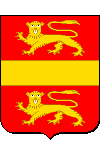
Napoleon Francis Joseph Charles Bonaparte was born on March 20, 1811 at the Tuileries Palace in Paris, the first and only child of Napoleon I, Emperor of the French, and Empress Marie-Louise of France, Archduchess of Austria.
From birth, he received the titles of "King of Rome", under decree of the senate of February 17, 1811, and "Prince Imperial" in virtue of the constitution of May 18, 1804.
The young boy "reigned" during two days under the name of Napoleon II, from April 4th to April 6th, 1814, Napoleon having written on April 4th an act of abdication reserving the rights of his son, and having to give up the crown for himself and his descendants on April 6th.
While his father, having bid farewell to his troops at Fontainebleau, was leaving for the island of Elba, the child took the direction of Vienna with his mother. He would never see his famous father again...
He spent the Hundred Days and subsequent years at the court of Vienna, in his maternal family. His mother, who generally resided at Parma, saw him little, while his grandfather, Emperor Francis I of Austria, cherished and educated him.
Duke of Reichstadt from 1818, he led a life away from the policy, even if one considered him one moment in 1830 for the throne that of Belgium or Poland.
The young man, who was only 21 years old, died of tuberculosis at the Schönbrunn Palace, in Vienna, on July 22nd, 1832. In 1940 his remains were transferred to Paris, one century exactly after those of his father, and buried in the Dome des Invalides .
"Napoleon-François-Charles-Joseph Bonaparte (1811-1832), King of Rome", painted 1819 by Sir Thomas Lawrence (Bristol 1769 - London 1830).
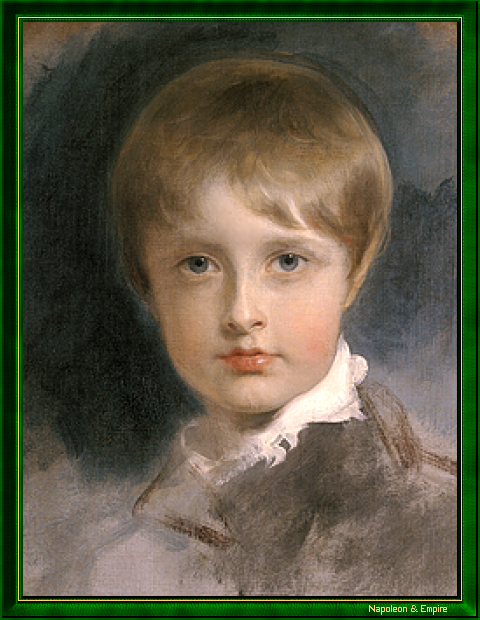
His nickname "L'Aiglon" ("The Eaglet") - by analogy to his father Napoleon called "The Eagle" - came from poems written by Victor Hugo in 1852. The eponymous drama by Edmond Rostand, written in 1900, perpetuated this use.
Other portraits
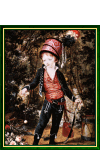
Enlarge
"Napoleon-François-Charles-Joseph Bonaparte (1811-1832), King of Rome", miniature by Jean-Baptiste Isabey (Nancy 1767 - Paris 1855).
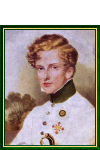
Enlarge
"Napoleon Franz Herzog von Reichstadt", by Moritz Michael Daffinger (Vienna 1790 - Vienna 1849).
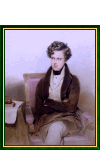
Enlarge
"Napoleon Franz Herzog von Reichstadt", by Moritz Michael Daffinger (Vienna 1790 - Vienna 1849).